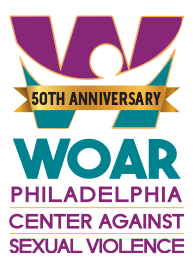Many survivors of relational violence do not report or experience barriers to reporting violent crimes. Formal responses to relational violence tend to focus on engaging the police and courts. These resources may not feel safe for survivors, especially survivors from historically marginalized communities. Survivors in Philadelphia deserve to have many options and supportive resources for safety.
This Alternative Routes to Justice Report is the product of the Shared Safety working group, which aimed to explore what justice means for survivors of intimate partner and sexual violence, human trafficking, and reproductive coercion (referred to collectively as relational violence). The working group sought feedback from survivors in Philadelphia through a needs assessment survey and this final report presents recommendations for how stakeholder groups can better support survivors.
Each section of this report details potential innovative responses, including:
Supporting survivors’ physical and personal wellness.
- Connecting survivors with resources that affirm their identities.
- Creating meaningful partnerships, increasing access, and building trust between relational violence organizations and other community organizations.
- Recognizing and developing the role that survivors’ communities have in supporting their safety.
Helping survivors get space and stay away from people who have harmed them.
- Developing “third spaces” for survivors. These are non-work and non-home spaces survivors could easily access. Third spaces can let survivors have space to safely think about what they want to do and access resources. Space is often critical to safety.
Supporting survivors to improve their financial resources.
- Increasing programs that provide cash grants to survivors and helping survivors recover from economic abuse. Advocating for systemic changes to support survivors’ financial wellbeing.
Expanding options for accountability and behavior change for people who have caused harm.
- Increasing access to and knowledge about programs that serve people who have caused harm in their relationships.
- Promoting community-building practices to help hold people accountable for harmful actions.
Improving legal responses to relational violence.
- Improving resources to educate survivors about what legal responses can and cannot do and how to navigate them. Advocating for increasing alternatives to police responses.
- Recognizing the reality of survivor gun ownership. Proactively safety planning with survivors about safe gun storage and practices.
For questions about this report, email info@sharedsafetyphila.org.





